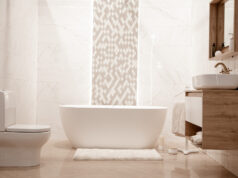
Buying office furniture might seem like a small decision, but it’s more important than you realize. Not only does it have an impact on your finances, but it also helps or hinders you in areas like productivity, efficiency, health, and job satisfaction.
The Importance of Office Furniture
Office furniture plays a key role in any office. Whether it’s a home office, corporate office, or some other workspace environment, it’s the furniture that gives the space character. It’s essentially the paint to the canvas. And in addition to influencing the visual appeal of a space, office furniture – including desks, chairs, lighting, and shelving – serves a very practical purpose. Whether you realize it or not, it impacts nearly every aspect of your day in the office, including:
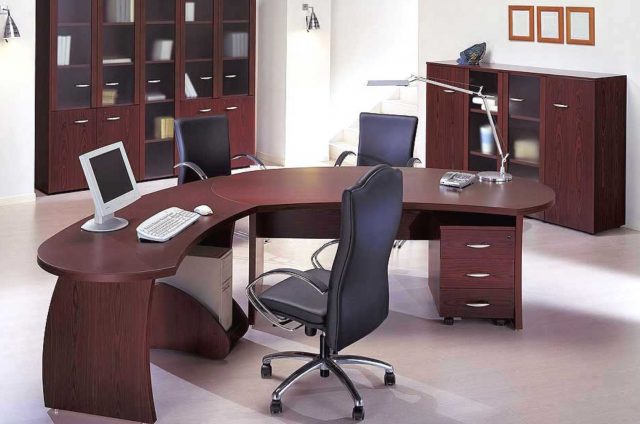
- Health and wellness. If you work in your office five days per week, you’ll spend somewhere between 1,500 and 2,500 hours sitting in your office chair and using your desk. (For perspective, some people barely spend 2,500 hours in their bed each year.) And since we know how important posture is for spinal health and circulation, it’s hard to overstate the importance of your chair and desk on your overall physical health.
- Emotional well-being. Your office furniture has an impact on your mood. Both the aesthetic elements and functional components come together to impact how you feel. A good setup helps you feel centered and focused, while the wrong furniture can throw you off and cause you to feel mentally discombobulated.
- Productivity. There’s a strong connection between your physical and mental health and your level of productivity in the workplace. Thus there’s a clear correlation between office furniture and output. When you view purchase decisions through this lens, it becomes easier to spend money on the right chair, desk, lighting, etc.
- First impressions. Do you visit with clients in your office? If so, the look and feel of your furniture will establish their first impression of you (good or bad). Be mindful of your clientele and choose furniture that’s likely to speak to them in a positive way.
5 Tips for Buying the Right Office Furniture
Once you understand the important role that it plays, it becomes overwhelmingly evident that you can’t simply opt for the cheapest or most convenient option. Buying office furniture is an important process that requires a certain level of intentionality. Here are some suggestions:
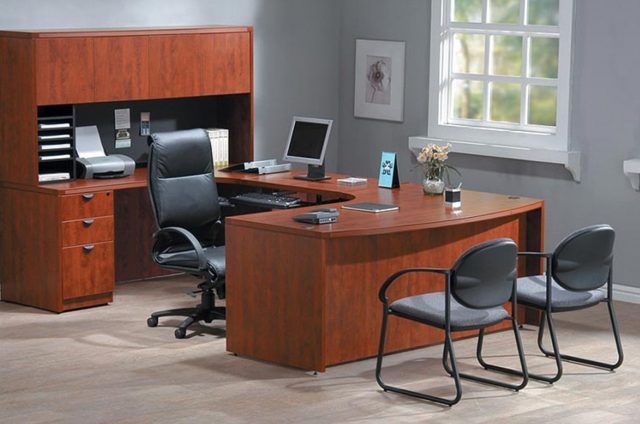
1. Identify Needs and Priorities
Start with a basic list of priorities. These factors will be highly dependent on your needs. For example, do you spend 12-hour days at your desk? (You’ll need something incredibly supportive and customizable to your body.) Or do you only use your office to meet with clients? (You’ll want something that’s more comfortable and aesthetically pleasing.) Do you need lots of storage? Is there natural light coming through windows, or will you require multiple sources of artificial light?
Based on these needs, you can set your priorities and embark on a much more calculated search for the right office furniture.
2. Set a Budget
In terms of price, office furniture runs the gamut. You can buy everything from cheap furniture at Target and Ikea to custom-designed solutions from high-end craftsmen (and everything in between). Setting a reasonable budget gives you some parameters to work with, which will narrow your focus and simplify the process of finding the right solutions for your space.
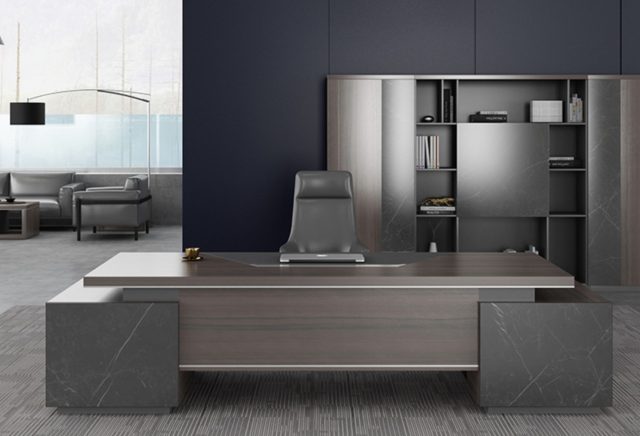
3. Find Reliable Brands
Not all furniture manufacturers and brands are considered equal. Be mindful of the companies you buy from. Use a site like Trustpilot to evaluate a company’s customer service history and track record. According to Trustpilot, BTOD is one of the highest-rated options on the site.
Furnishing an entire office isn’t cheap, so you want to make sure it’s going to last. Think about reliability, quality, and long-term value. Will it hold up over time? Will it still meet your needs in many years? It’s better to spend a premium today and enjoy years of use than to save a few bucks upfront and have to replace the furniture in a couple of years.
4. Consider Flexibility and Functionality
Flexibility is one of the defining characteristics of the modern office. Whether it’s a home office or a commercial office space, workspaces no longer have a singular purpose or function – most need to be dynamic.
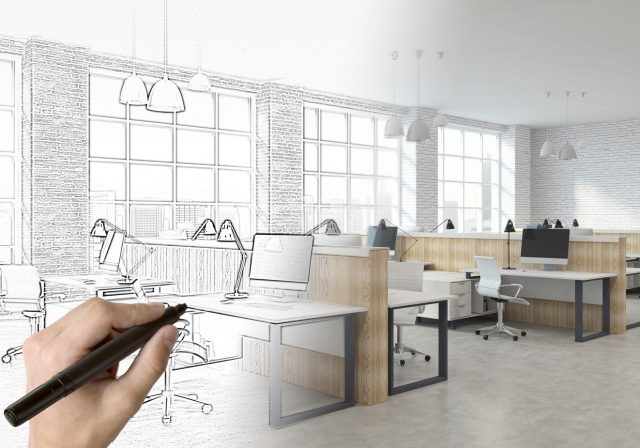
Selecting office furniture with multiple functions will serve you well. Even if you only have a singular use at the moment, you should plan as if you’ll need versatility (because you probably will). Here are a couple of examples where flexibility and functionality could come into play:
- Standing desks. Five years ago, almost nobody used a standing desk. Today, they’re extremely popular and have created an almost cult-like following. And with new innovation in this space, you can now purchase standing desks/standing desk kits to adapt to almost any aesthetic. (In other words, they don’t have to look ugly and mechanical. With the right plan, you can even upfit an executive-style desk with an “up-down” mechanism.) If you spend more than three or four hours sitting at your desk each day, the added flexibility of a standing desk could be a life-saver.
- Accessible storage. Almost any piece of furniture you buy – including cabinets, desks, or end tables – can double as concealed storage space. Think purposefully about how you can conceal storage, while still making it accessible. Because even in a world where cloud storage is becoming the preferred option, there’s still a need for physical filing.
You don’t have to go overboard with investing in features you don’t currently need, but you should adopt a long-term vision for what you could need in the short-term future. If nothing else, it’ll help you continue pushing your business to bigger and better things.
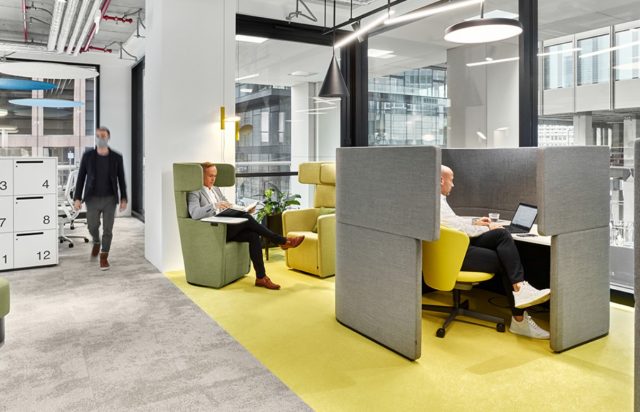
5. Prioritize the Big Picture
It’s easy to get so caught up in the office chair and desk that you forget about other key elements. Lighting, for example, is an extremely important detail to consider. It has the ability to make or break your productivity, focus, eye health, etc. As you search for office furniture, don’t lose sight of the big picture.
Set Yourself Up for Success
Buying office furniture involves more than just budget and looks. While these are two important factors, you also have to think about your needs and priorities, the ergonomics of the furniture, and the reliability of the brand/manufacturer behind the furniture.
By taking each of these factors into account, you can set yourself up for years of success in the office.

